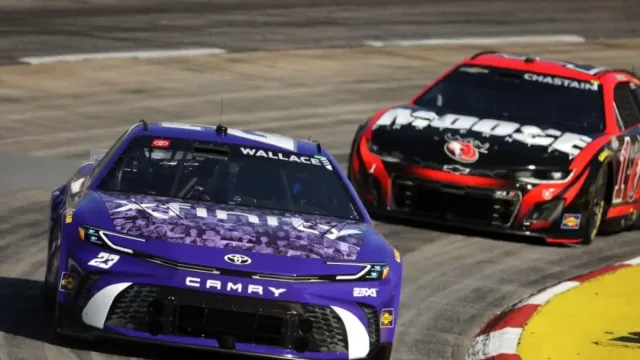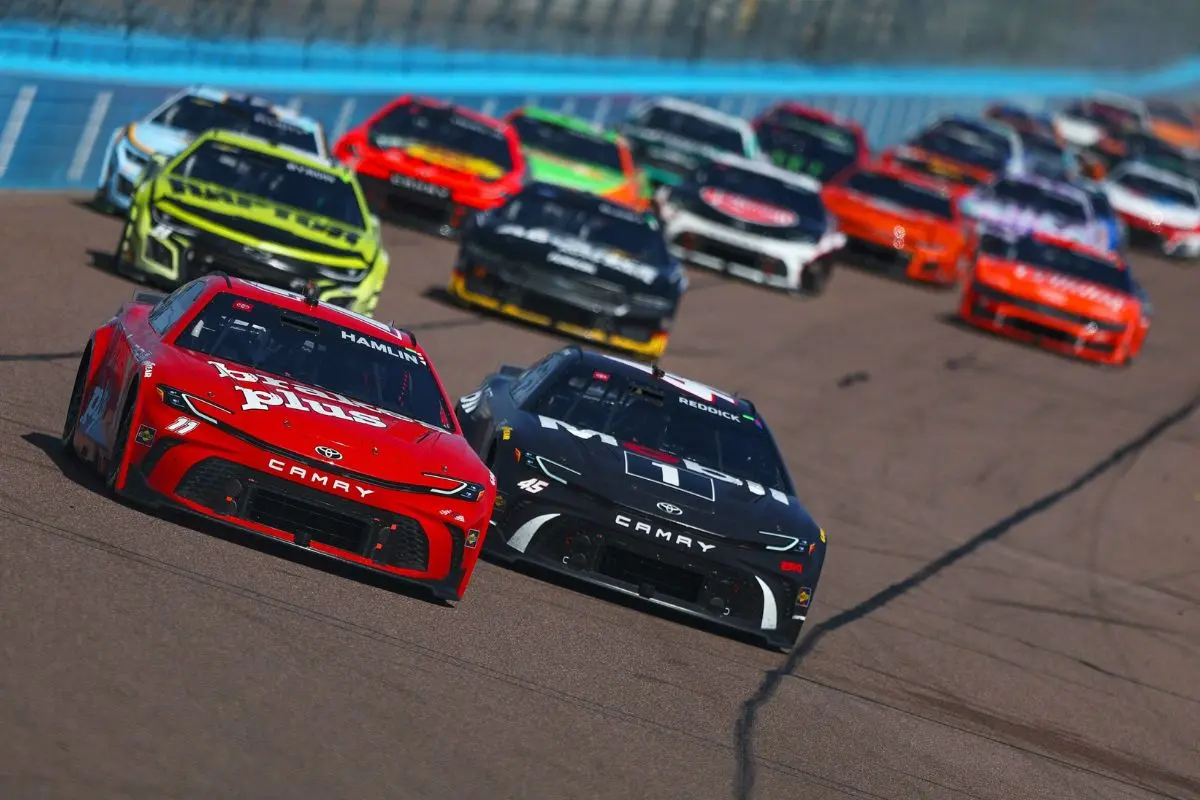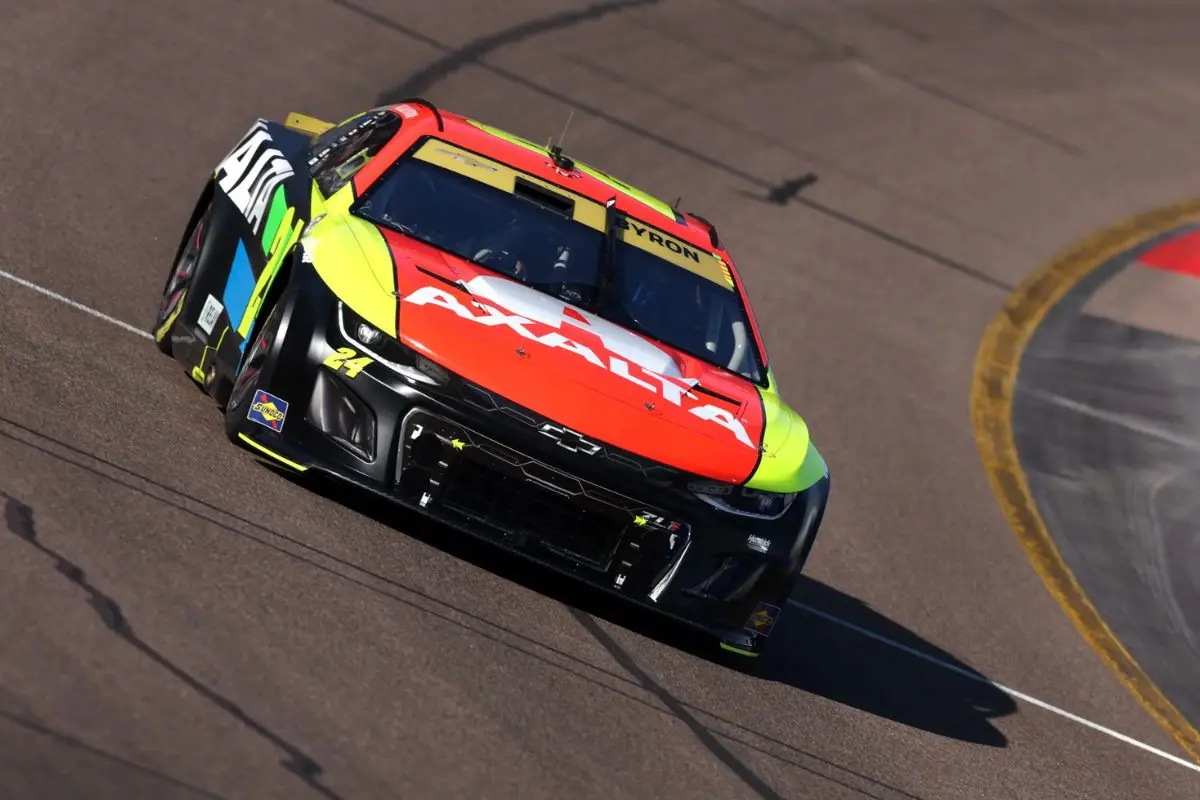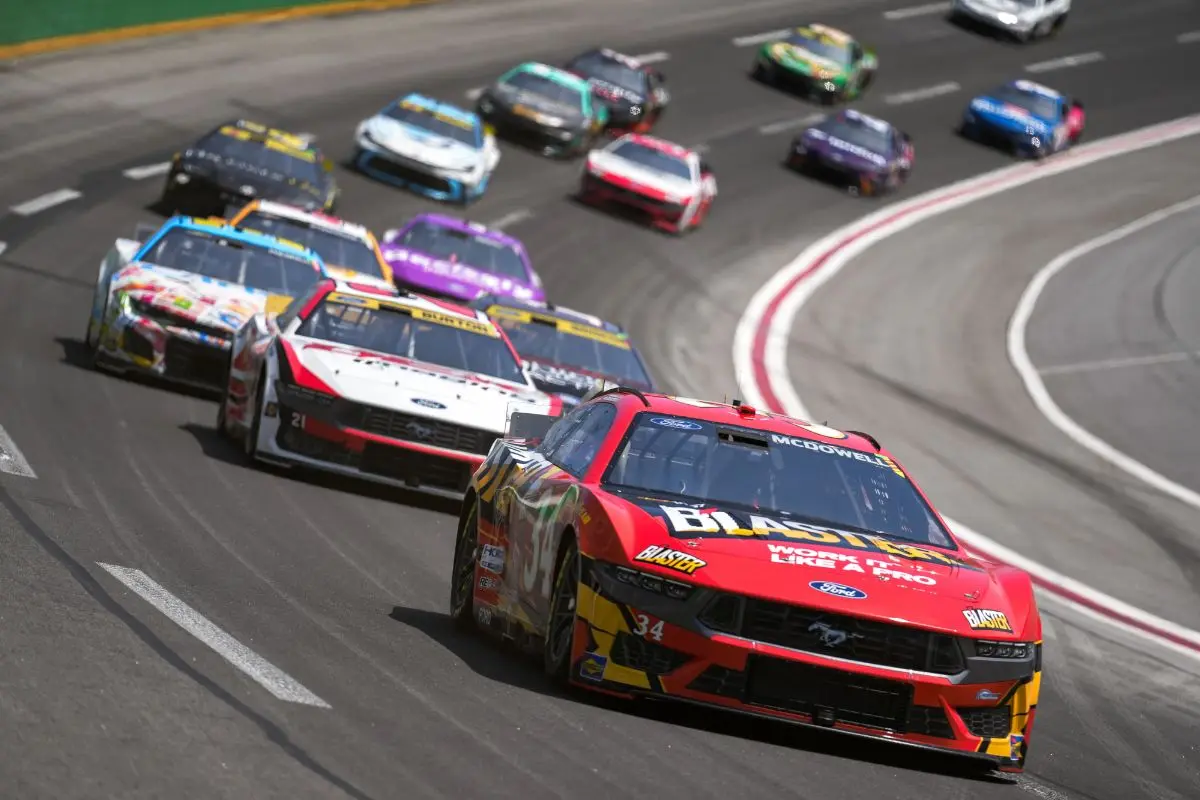Dale Earnhardt Jr. Calls for Tougher Penalties: Recent $100,000 fines imposed on NASCAR drivers for race manipulation, including the Martinsville incident, have drawn criticism for being inadequate. Dale Earnhardt Jr. demands stronger penalties, such as driver suspensions, to guarantee compliance and uphold the integrity of the sport. He argues that leniency has allowed identical unethical behaviors to persist, highlighting a gap in NASCAR’s current deterrents. While NASCAR is considering harsher penalties, the effectiveness of fines alone remains questionable.
Key Highlights
- Dale Earnhardt Jr. believes current $100K fines and point deductions are insufficient to deter race manipulation in NASCAR.
- He demands suspending drivers involved in manipulation to reinforce NASCAR’s integrity and accountability.
- Junior references the lenient penalties from the 2022 ROVAL incident as a precedent for stronger measures.
- NASCAR is considering harsher penalties, including the possibility of zero-tolerance measures like driver suspensions.
- Suspensions can disrupt team dynamics, affect sponsorships, and serve as a public deterrent against future infractions.
NASCAR Issues Penalties for Race Manipulation at Martinsville
In the wake of the recent race manipulation scandal at Martinsville, NASCAR has taken decisive action to address the integrity of the sport. The incident, which involved drivers Ross Chastain and Austin Dillon from Chevrolet, along with Toyota’s Bubba Wallace, has ignited a firestorm of controversy within the NASCAR community.
Recognizing the potential damage to its reputation, NASCAR implemented notable penalties aimed at the drivers and their respective teams. Each implicated driver faced a $100,000 fine, a measure intended to serve as a deterrent against future violations.
Additionally, the league docked 50 points from their season totals, a steep penalty reflecting the severity of the misconduct. This points deduction not only affects the individual standings but also has consequences for their teams in the championship race, thereby amplifying the consequences of their actions.
Alongside the fines levied against the drivers, NASCAR targeted the teams involved with further punitive measures. The #1, #3, and #23 teams saw their crew chiefs, spotters, and race executives suspended for the remainder of the season. This all-encompassing approach signals NASCAR’s commitment to maintaining a level playing field and restoring public confidence in the sport’s integrity.
Dale Earnhardt Jr. Speaks Out on Penalties
Many within the NASCAR community have expressed concerns regarding the recent penalties imposed for race manipulation, and Dale Earnhardt Jr. is among the most vocal critics. In a recent episode of the Dale Jr. Download podcast, he articulated his belief that the current measures—comprising hefty fines and point deductions—fail to adequately deter future infractions. Dale Earnhardt Jr. said that suspending drivers involved in manipulation would set a more effective precedent.
“If I was an owner sitting there with $200,000 worth of fines and I’d done something to try to help the whole group…I’d go well, Chevy, I’m in a hell of a damn predicament here, right…So I think it’s a lot of money, I think the points are the points are a lot that’s for sure. But I still stand by the idea that to really get someone’s attention, I think parking them a race is the way it goes.” – (Dale Earnhardt Jr.)
His critique draws parallels to the 2022 ROVAL race, where Cole Custer received a penalty for aiding his teammate but faced no suspension. This leniency, according to Earnhardt Jr., reduces NASCAR’s commitment to maintaining race integrity. He argued that stronger penalties, particularly suspensions, are crucial for deterring similar actions in the future.
Earnhardt Jr.’s perspective emphasizes the necessity for a robust disciplinary framework to uphold the integrity of NASCAR racing.
NASCAR Considering Harsher Penalties for Future Incidents
NASCAR is actively evaluating the implementation of harsher penalties in response to recent incidents of race manipulation. This consideration follows mounting stress from drivers, fans, and commentators who perceive a growing need for stricter measures to uphold race integrity.
NASCAR Vice President Elton Sawyer has indicated that the organization is open to revising its penalty structure, especially if comparable incidents occur in the future. However, the urgency of these discussions has been amplified by calls from influential figures within the sport, particularly Dale Earnhardt Jr.
I saw where NASCAR made a comment, Elton Sawyer said we considered penalizing or parking the drivers that may be something down the road. Dang man, I hate that because it’s kind of like your parent going next time, it’s your (expletive), next time you’re getting the belt. Maybe now’s the time to bring the belt out!” – (Dale Earnhardt Jr.)
Earnhardt Jr. has strongly advocated for immediate action, criticizing NASCAR‘s current stance. He emphasized that delaying the introduction of tougher penalties could undermine the sport’s credibility.
His suggestion to “bring the belt out” reflects a desire for penalties that resonate more profoundly with drivers, advocating for measures such as parking offending drivers to communicate a zero-tolerance approach to race manipulation.
The Impact of Suspensions on Drivers and Teams
Suspensions can have a profound impact on drivers and their teams, fundamentally altering the dynamics of competition and accountability within the sport. As Dale Earnhardt Jr. highlights, the emotional toll on a driver is substantial; missing a race creates feelings of embarrassment and shame, which resonate deeply within the personal and professional scene of the sport.
This public acknowledgment of wrongdoing not only affects the individual driver but also cascades through their team and sponsors, emphasizing the collective responsibility inherent in NASCAR.
“Drivers would never assume that you were going to be told man you’re not running you’re out going to get another guy in there. And why is that a deterrent? So obviously the driver’s embarrassed. They’re going to get mad initially, but then it’s going to fall into a bit of an embarrassed emotion. They’re going to be embarrassed, ashamed oh my I let my team down. I’m not going to be there for them. They’re going to have someone else. That’s my team and they’ve got to watch their car, go to the racetrack and someone else drives it.” – (Dale Earnhardt Jr.)
Team Morale: The absence of a key driver can disrupt team cohesion and morale, as crew members must adapt to new driving strategies and dynamics.
Sponsorship Relations: Sponsors may reassess their partnerships after a suspension, concerned about their brand’s image and alignment with the driver’s actions.
Long-term Behavior Change: The public nature of a suspension acts as a powerful deterrent, prompting drivers to evaluate their behavior more critically to avoid similar consequences in the future.
“The team, the owner, the sponsor, they go through all of that all that as well because all next week on the broadcast throughout the weekend practice qualifying and in the race broadcast is going to have to cover it. Guess who’s driving this car today…hey this is why. And that’s not a great little bit of recognition for any of that group, that is a great deterrent.” – (Dale Earnhardt Jr.)
News in Brief: Dale Earnhardt Jr. Calls for Tougher Penalties
The ongoing issue of race manipulation within NASCAR highlights the inadequacy of current penalties, as evidenced by the recent $200,000 fines. Dale Earnhardt Jr.’s calls for stricter measures reflect a growing concern among stakeholders regarding the integrity of the sport.
The consideration of harsher penalties may serve as a deterrent, yet the root causes of such behavior must be addressed to guarantee consistent adherence to racing standards. Ultimately, a thorough approach is vital for safeguarding NASCAR’s competitive integrity.
ALSO READ: Penalties for NASCAR’s Cheating Drivers—Big Drops in Standings!



